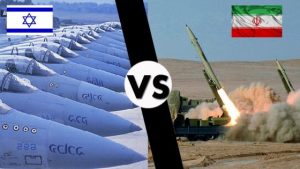Israel-Iran War and Its Impact on Global Manufacturing

The escalation of hostilities between Israel and Iran in June 2025 represents another sobering reminder of how geopolitical tensions can disrupt the global economy and industrial value chains, according to PAMA Manufacturing Global News Bulletin, June 2025.
It revealed that what began as a regional security crisis quickly reverberated across energy markets and manufacturing sectors worldwide, not through direct supply disruptions initially, but through heightened uncertainty, rising costs, and fears of prolonged instability.
It cited how the war impacted the global economy and global oil price, noting that Iran is one of the top oil-producing countries in the world, with an approximately proven oil reserve of 155 billion barrels (4th largest globally).
The country produced about 3.99 million barrels of crude oil per day in 2023, or 4% of the global supply, according to the US Energy Information Administration.
“Iran also sits on the Strait of Hormuz, which serves as a conduit for 20 to 30% of global oil shipments. As of 2019, a third of the world’s liquefied natural gas and almost 25% of total global oil consumption passed through the Strait, making it a highly important strategic location for international trade.
“In an effort to increase international pressure on Israel to halt its strikes, Iran’s Parliament on 22 June 2025 voted to close the Strait of Hormuz, a critical chokepoint for global oil and gas shipments. This move came in direct response to U.S. strikes on Iran’s Fordow and Natanz nuclear facilities the day before. The decision, pending final approval from the Supreme National Security Council.
“Even before any closure materialised, oil markets reacted strongly. Brent crude, which had been trading below $70 per barrel prior to the conflict, surged to over $81 by 23 June 2025, driven largely by fears of potential supply disruptions rather than actual shortages.
“The 16% jump in oil prices within days triggered spillover effects worldwide, pushing up the costs of petrol, diesel, jet fuel, gas, and other related products. The surge reflected global anxiety over the possibility of a prolonged conflict between Israel and Iran, with major implications for energy security,” it added.
Fortunately, tensions, reportedly began to ease when Iran’s retaliation — a limited, anticipated strike on a U.S. military base in Qatar that caused minimal damage — was seen by markets as a signal of de-escalation, adding “Oil prices fell sharply that same day, and after U.S. President Donald Trump announced that Israel and Iran had agreed to a ceasefire, Brent crude dropped below pre-war levels to around $67 per barrel by Tuesday.”
The Israel-Iran War has great impact on global manufacturing, although the Strait, which handles about 20% of globally traded oil, remains open, shipping companies are paying more in insurance premiums and re-routing some vessels to avoid high-risk zones. Manufacturers worldwide are now factoring geopolitical instability into their operational costs and supply chain decisions, even though no large-scale production shutdowns have occurred yet.
“Increased uncertainty has led to higher production costs, particularly in energy-intensive manufacturing industries such as steel, chemicals, plastics, and cement. Manufacturers in Asia and Europe, particularly Germany, Japan,” the bulletin concluded.
